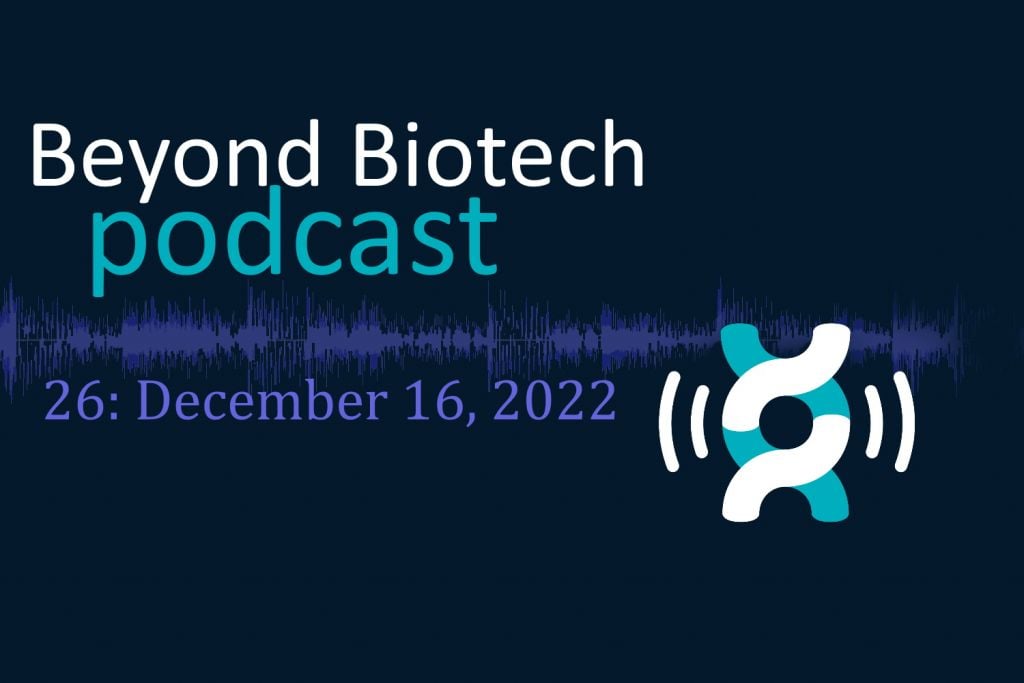This week, we have three guests. We have conversations with Antoine Espinet, CEO of MicrofluidX; Will West, CEO of CellCentric; and Sara Holland, patent attorney at Potter Clarkson.
MicrofluidX raises £3.3M to develop advanced therapy manufacturing platform
MicrofluidX (MFX), a U.K. based provider of next-generation bioreactors for cell research and manufacturing, today announces £3.3 million ($4 million) of secured investments, bringing the company’s total funding to date to £7 million ($8.5 million).
MFX’s next generation platform, the Cyto Engine, addresses the need for an affordable, scalable cell culture platform to revolutionize research, facilitate large-scale manufacture, and enable widespread access to advanced therapies.
“Advanced therapy manufacturing is hindered by out of date, inadequate manufacturing technologies,” said Antoine Espinet, CEO of MFX.
“Our aim to commoditize manufacturing for cell and gene therapies through automation, digitalization, and the adoption of machine learning is supported by our investors, who appreciate the incredible impact this could have on the cell and gene therapy sector, and ultimately patients around the world.”
MFX said it is addressing the two large pain points faced by the advanced therapies industry, commercialization and clinical translation.
By providing a scalable bioprocessing platform with complete integration of online process analytical tools and data analytics powered by machine learning, the company hopes the Cyto Engine will reduce the cost and time of advanced therapy development and help bring these life-saving treatments to patients.
Potter Clarkson patent attorney, Sara Holland
Sara Holland is a former research scientist turned patent attorney in the U.K.
After finishing her PhD in engineering artificial yeast chromosomes, Holland carried out seven years of postdoctoral research at the University of Nottingham. This gave her a good understanding of the challenges that scientists face when she moved over to Potter Clarkson, an IP law firm.
In her work as a patent attorney she helps universities, technology transfer departments and SMEs protect their inventions, with a focus on synthetic biology.
Holland also co-founded the Women in Synthetic Biology Network, a group that aims to support gender diversity and support women working in the field of synthetic biology.
CellCentric presents early clinical data at ASH
CellCentric, a clinical stage biotechnology company pioneering small molecule inhibition of p300/CBP to treat cancer, announced clinical data for the first time at the 64th American Society of Haematology (ASH) annual meeting in New Orleans.
To date, 26 patients with relapsed/refractory multiple myeloma (RRMM) have been treated with inobrodib as monotherapy, including seven most recently at the recommended phase 2 dose and dose schedule (RP2D). Treatment has been generally well-tolerated with the majority of on-target toxicities being mild or moderate in severity.
Among the patients treated at the RP2D, six out of seven patients had reduction or stabilization of serum free light chains. One patient saw an unconfirmed complete response (CR), which went on to become a durable confirmed very good partial response (VGPR); a second patient demonstrated a confirmed partial response (PR); and a third currently has an unconfirmed PR (by IMWG response criteria). These three patients remain on treatment after more than eight months.
Tim Somervaille, chief investigator of CellCentric’s phase 1 / 2, international hematological malignancy study, and professor of hematological oncology at Cancer Research UK Manchester Institute and The University of Manchester, and honorary consultant hematologist at The Christie NHS Foundation Trust said: “We are excited with these initial clinical results, which show inobrodib has the potential to offer patients with advanced multiple myeloma an additional treatment option. Furthermore, the preclinical data also presented today outlines and supports the hypothesis that targeting p300/CBP with inobrodib represents an entirely novel therapeutic strategy in this disease setting. Taken together, these findings provide clear encouragement for the further clinical development of this first in class drug.”
Paul Richardson, director of clinical research and clinical program leader of the Jerome Pippe Myeloma Center and the RJ Corman Professor of Medicine, Harvard Medical School and Dana Farber Cancer Institute added: “This is encouraging early progress in a relapsed and refractory myeloma patient population that has significant unmet medical needs. Demonstrating clear monotherapy activity is important, but so too is seeing promising initial signs of combinability with existing standards of care, which typically serve as backbone agents in this setting.”
About inobrodib
CellCentric has developed inobrodib from concept through to clinical trials. It is an oral, first in class small molecule inhibitor drug that targets twin cancer gene regulators p300 and CBP. Inhibiting p300/CBP impacts the expression of key cancer drivers including MYC and IRF4 which are particularly important in the progression of certain blood cancers. In addition, inobrodib impacts the androgen receptor pathway. CellCentric has demonstrated that its pioneering drug, inobrodib, has a direct impact on these key oncogenes both pre-clinically and in tumor samples.
Inobrodib is formulated as an oral capsule which, along with its manageable safety profile, allows for administration at home.
As well as testing in heavily pre-treated, relapsed refractory hematological malignancy patients, CellCentric also has a study evaluating inobrodib in solid tumors, including late stage prostate cancer (mCRPC).





